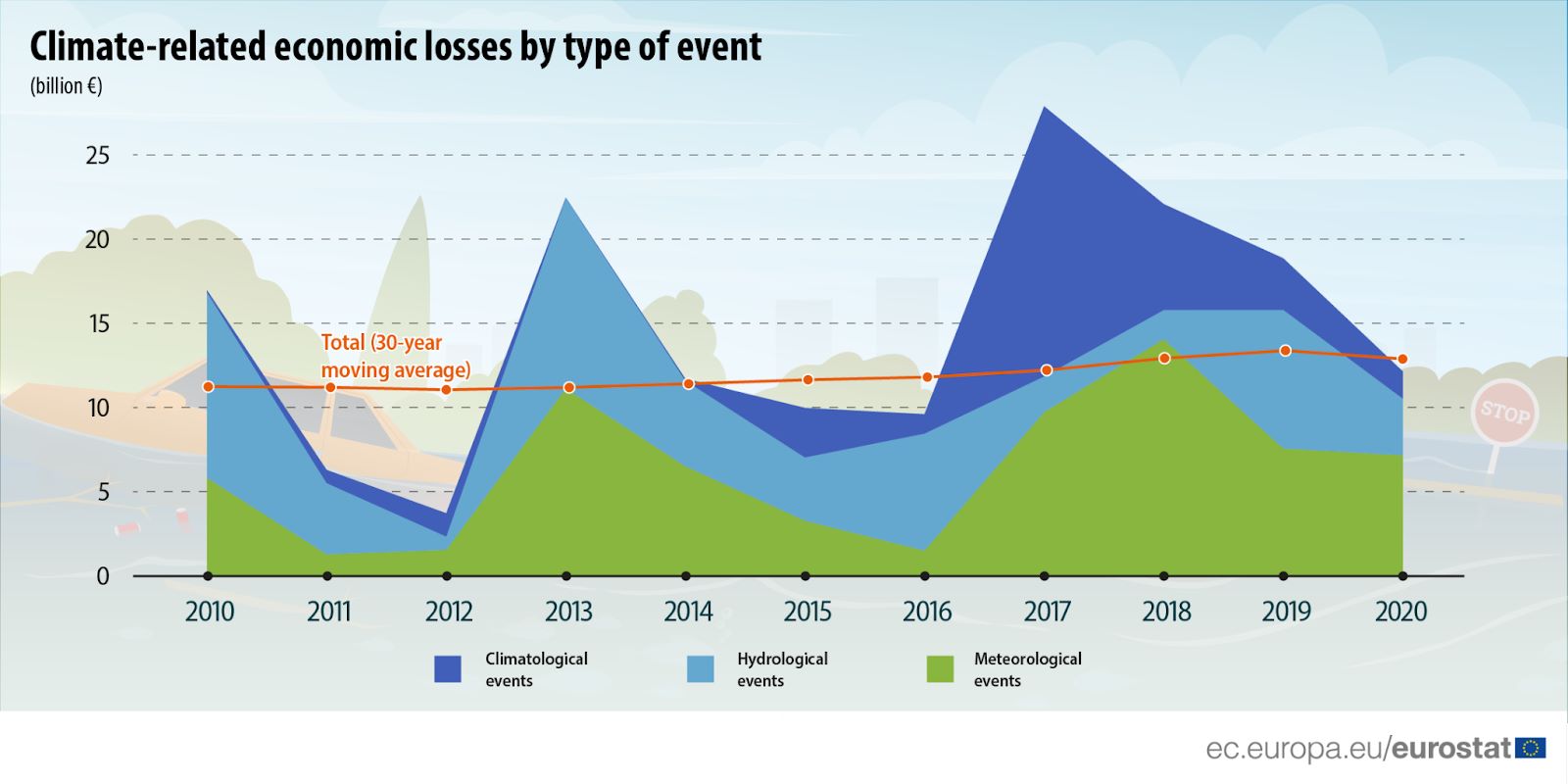As 2024 European Elections Loom, Climate Inaction is Leading to Major Issues
Summer 2023's climate chaos in Europe: wildfires, droughts, and political inertia. Explore the causes, impacts, and Volt Europa's climate policies.

Summer 2023 broke several records across Europe as the climate crisis escalated to unprecedented levels. Temperatures soared to new highs in Spain in April, leading to the Bloc’s first wildfires, as the following months saw blazes start in Portugal, Italy, Croatia and most notably Greece, where hundreds of firefighters from across the EU have been struggling to fight against the largest fire in the region’s recorded history. In Central Europe, high temperatures have led to water scarcity and drought conditions that are raising questions as to the long-term climate adaptation strategies. These scenes contrast the heavy downpours and flooding affecting Scandinavia, but continue to highlight the need for urgent action on climate.
System Failure
The cause of these disasters is not unknown. “Is the climate crisis the alibi for everything?” Greek Prime Minister Kyriakos Mitsotakis expressed in parliament, “No, it is not an alibi – but it is part of the interpretation.” Climate change is exacerbating extreme regional weather patterns and creating increasingly dangerous conditions that are not only highlighting that we are well into a crisis but also how unprepared we are for it.
Greek experts blame the ongoing devastation on poor government planning and dysfunction between the state and scientific bodies. Spain, which is leading the EU in fire-affected land in back-to-back years, saw sixty of its leading wildfire prevention experts sign a declaration calling for better land management as part of climate adaptation planning. Yet what is happening in the Mediterranean is not proving to shake things up elsewhere in the EU.
Italy’s right-wing government is denying the impacts of the crisis within its own borders, France’s climate action and adaptation strategies have been called weak by its own climate council, while the leading candidate to replace EU climate chief Frans Timmermans, Wopke Hoekstra, is a former Shell employee whose party has been against ‘systematically’ trying to sabotage the Green New Deal and Nature Restoration Law. In a time where environmental reform is sorely needed, Europe seems to be unprepared and unwilling to act on climate.
<Read more: Vote for Nature: Protecting Europe's Future with the Nature Restoration Law>
“In a world where an oil company chief is chairing the next COP, and what is undeniable for science becomes all too easily deniable in the service of corporate profits and interests, the glacial pace of political action in the EU stands in stark contrast with the breakneck pace of climate breakdown,” wrote Volt Europa co-President Francesca Romana D'Antuono in a statement earlier this year, “While already negatively impacting the livelihood of millions in Europe, the climate crisis is not as mobilising as the average progressive politician would think.”
In a time that requires a united European community, politicians are engaging in widespread doublespeak at a domestic and international level that is leaving their constituents in a bind.
Leaving No-Man’s Land
In 2014 the European Commission noted that climate change damages could cost the Bloc up to 4% of its Gross Domestic Product by 2100 - roughly €100 billion per annum - if warming temperatures were not limited to 2 degrees Celsius. The European Environmental Agency recorded over €56 billion in damages in 2021 alone, and we are on track for 2.7 degrees of warming with current pledges.
What Europeans need is strong, serious leadership keen on tackling the issues that affect its inhabitants, this is clearly not what the status quo has been doing. "Our challenges, be it economic recovery or tackling global warming, necessitate a forward-thinking political movement that transcends national borders,” posited Mihaela Sirițanu, co-president of Volt Romania during the party’s June general assembly.

Credit: © European Union, 1995-2023
Leading means having to take difficult decisions, and Volt Europa’s climate policies heading into the 2024 European elections reflect this. The party proposes decarbonization through increased renewable energy production, the liberalising of energy markets, removing subsidies for fossil fuels and implementing EU-wide phase-out targets. Such a move would ensure that the EU meets its net-zero pledges on time while also generating significant savings and revenues that can be reinvested back into local communities to promote sustainable projects that will future-proof the socio-economic platform the Bloc is built on. Adding to these policies would be new reforms on mass transport industries, as well as finding a solution on carbon markets and appropriate support for the global shift to net-zero.
"We undertake this endeavour not because it is easy, but because it is hard," states Inês Bravo Figueiredo, Volt Europa’s policy co-lead.
But how do we leave the no-man’s land that we find ourselves in politically?
Become an activist. Fight for the right to a better future. Confront a political class that is sleepwalking into a crisis. Inform and rally your community around workable solutions. Support and vote for representatives that have your interests at heart. Join groups and organisations that provide you the opportunity to develop your ideas and put them to use.
Policy is created by those in power, and the power belongs to the electorate. The 2024 European Election will be happening from June 6th-9th, make your voice heard.
Article by Vincent Diringer.